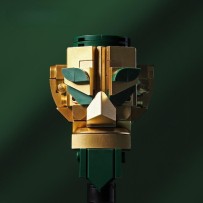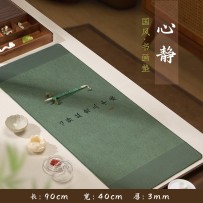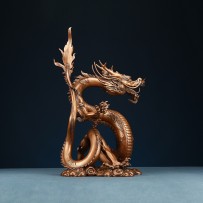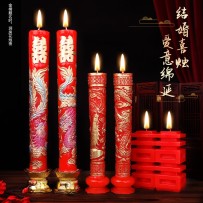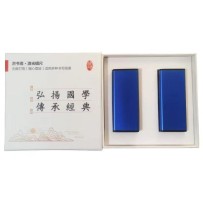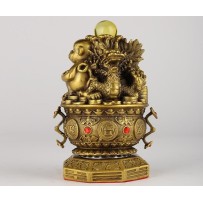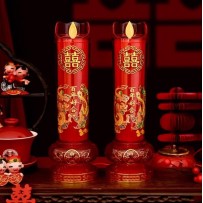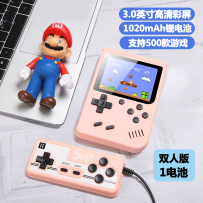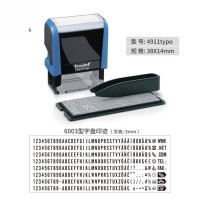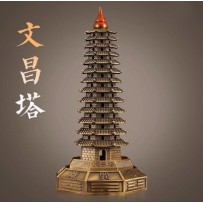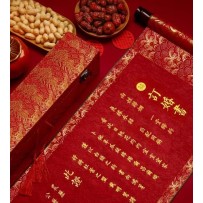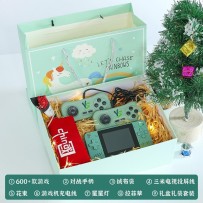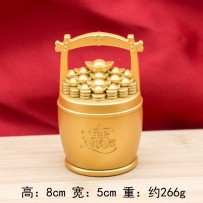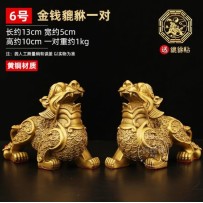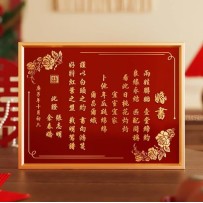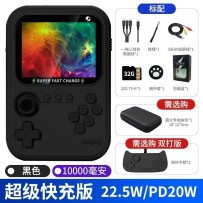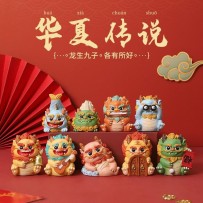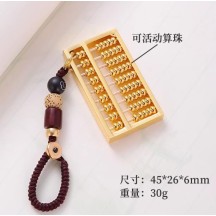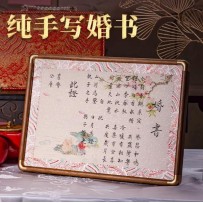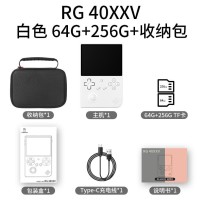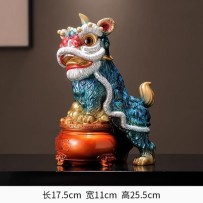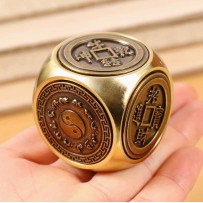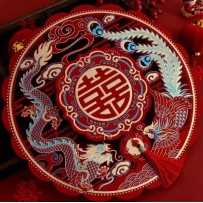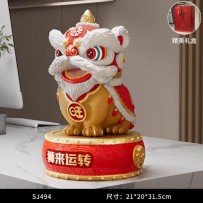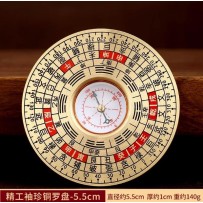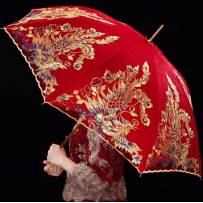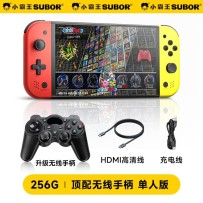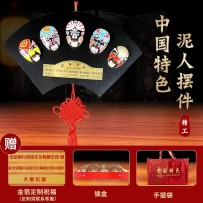Subcategories
Active filters
The felt mat for calligraphy and painting helps enhance the expression of the art. Writing on a table covered with felt feels very comfortable for the hand. The elasticity of the felt mat makes it easier to control the brush tip, which helps improve brush technique and develop a better tactile feel.
The dragon is a well-known symbol of good fortune in China. For thousands of years, the Chinese people have placed countless beautiful hopes and wishes upon it.
The duty of a paperweight (zhenchi) is not merely to hold down paper — it also serves as a symbolic warning, signaling that outsiders should not casually touch the owner's personal belongings. Beyond its practical use, the zhenchi embodies meanings such as "calming the mind" and "protecting the home," helping one remain composed and ward off negative energies. The "ruler" (chi) aspect of its name also represents a tool of measurement, symbolizing that a gentleman conducts himself with rules and boundaries. As an essential item on a scholar’s desk, the paperweight is not just a functional object, but also a refined work of art that brings aesthetic pleasure.
The twelve zodiac figurines are designed with anthropomorphic features and varied forms, each embodying a unique and auspicious meaning.
The Advantages and Functions of Movable Type Stamps Include:
-
Reusable:
Movable type stamps can be disassembled and rearranged, allowing for adjustments to different printing content. This makes them reusable. -
Improved Printing Efficiency:
Compared to woodblock printing, movable type allows for faster typesetting and printing, significantly enhancing efficiency. -
Reduced Storage Space:
After printing, the individual type blocks can be disassembled and stored, requiring much less space than traditional woodblock printing. -
Adaptable to Various Needs:
Movable type stamps can accommodate a wide range of characters and patterns, including rare or uncommon characters, and can be assembled on demand.
The Wen Chang Pagoda is believed to house the knowledge of countless books and literary works. Also known as the Pagoda of Literary Star, Pen Pagoda, or Literary Peak Pagoda, it is one of the most commonly used Feng Shui symbols for enhancing wisdom, academic success, and intellectual growth. It is thought to greatly benefit studies, scholarly achievement, and career advancement.
A wealth figurine generally symbolizes prosperity and good fortune, with the hope of attracting wealth and success in one’s career. These figurines are typically used as decorative items, placed in homes or shops with the intention of bringing financial luck and positive energy.
In Chinese tradition, it is customary to decorate with Pixiu, a mythical creature rich in symbolic meaning. People believe that Pixiu brings joy and good fortune. From ancient times to the present, both emperors and commoners have placed great importance on collecting and wearing Pixiu. According to legend, beyond attracting wealth and warding off evil, Pixiu is also believed to protect the home, neutralize negative influences (such as Tai Sui), and even promote harmonious relationships.
The Nine Sons of the Dragon —some fierce, some gentle, some honest and naive, others clever and sly —each has a unique personality and distinct preferences.Rooted in the rich and legendary mythology of ancient China,they embody mystery and cultural depth,now reimagined through a modern aesthetic to convey a strong sense of tradition and heritage.
The abacus is a manually operated calculating tool. It originated in China and is considered one of the important inventions of ancient Chinese civilization. Before the widespread use of Arabic numerals, the abacus was one of the most commonly used calculation tools in the world.
The Lucky Lion figurine symbolizes attracting wealth and treasure, prosperity, and good fortune. The lion itself represents strength, authority, and bravery, while the God of Wealth stands for fortune and auspiciousness. Together, they convey a powerful meaning of thriving business and continuous financial success.
The Lucky Lion figurine symbolizes attracting wealth and treasure, prosperity, and good fortune. The lion itself represents strength, authority, and bravery, while the God of Wealth stands for fortune and auspiciousness. Together, they convey a powerful meaning of thriving business and continuous financial success.
In ancient times, the luopan was used to guide direction and assess geographical knowledge, and thus it also came to symbolize wisdom and learning.
Face painting (lianpu) in traditional Chinese opera is an exaggerated theatrical technique that uses makeup to emphasize a character's facial features and expressions, highlighting their personality, emotions, and traits. At the same time, opera masks are also a form of decorative art, combining dots, lines, shapes, and colors in a harmonious way. With vivid colors, elegant designs, and deliberate exaggeration, they vividly and expressively portray the external appearance and inner character of dramatic figures.










